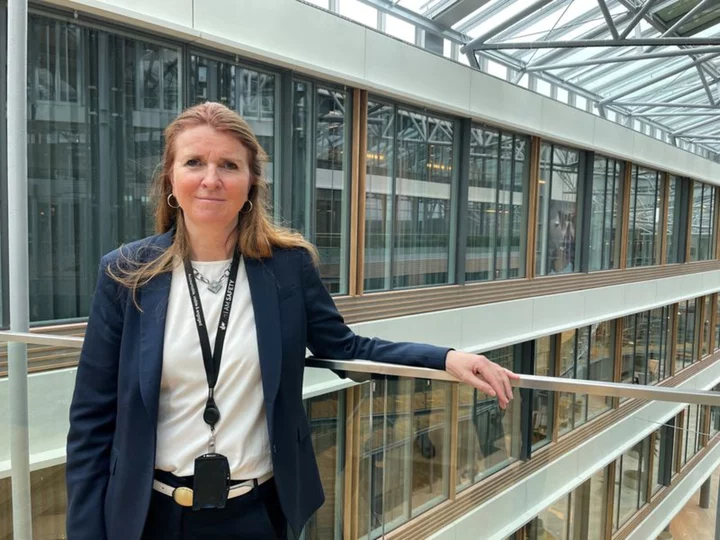By Nerijus Adomaitis
BERGEN, Norway Inspections of Norway's offshore gas pipelines after the Nord Stream blasts found nothing suspicious, an executive at energy major Equinor told Reuters, in the first official word on the security sweep.
However, risks remain after last year's still-unexplained explosions at the Nord Stream pipelines built to carry Russian gas to Germany via the Baltic Sea, warned Jannicke Nilsson, who manages security for Equinor.
Europe's largest gas supplier after a drop in Russian flows last year, Equinor also acts as technical service provider for offshore pipelines operator Gassco. It launched the inspections shortly after the explosions on Sept. 26.
"We did find the things that we wanted to check, and when we checked it, it was OK," Jannicke Nilsson, Equinor's executive in charge of security, safety and sustainability, said in an interview.
The company said inspections had been conducted to identify anything out of the ordinary, like damages, foreign objects or any changes to how the pipelines are covered on the seabed.
Nilsson, who rarely gives interviews, spoke about how the war in Ukraine and the Nord Stream explosions have changed the operations of Norway's largest oil and gas producer.
Despite underwater inspections not finding any suspicious objects along Norway's key pipelines, the threat of an attack was still present.
"It's not gone. What happened with Nord Stream 1 and Nord Stream 2 is a very clear reminder of how far some people are willing to go," she said.
NATO HELP
Equinor was working with authorities in Norway, the European Union, Britain and military alliance NATO on what the company can do to prevent such an attack, she added.
Norway is a member of NATO but not of the European Union.
Last summer, Norway designated Equinor and Gassco as companies critical to national security, allowing security services to share relevant classified information.
After the Feb. 24 invasion, some Equinor executives including Nilsson received security clearances from Norwegian authorities, allowing them to read intelligence reports.
In January, Equinor CEO Anders Opedal went to NATO's headquarters in Brussels to speak about protection of the West's offshore infrastructure, such as pipelines and cables.
After the Nord Stream blasts, the Norwegian Navy and NATO allies patrolled around offshore oil and gas platforms. In February, NATO established a Critical Undersea Infrastructure Protection Cell to improve cooperation with the industry.
"If we need assistance, the Norwegian military and NATO would provide resources... they would be here quickly," Nilsson said.
Onshore, Norway's military posted soldiers to guard major oil and gas processing plants and help police, though their work there has now ended.
In a show of NATO's and the EU's focus on protecting Europe's gas supplies, their chiefs Jens Stoltenberg and Ursula von der Leyen visited Norway's largest gas producing platform, Troll A, in March.
"I don't think this could have happened two years ago... because back then we were not seen as that important for European energy security," Nilsson said. "Now they see that gas from Norway and gas from Equinor is key."
(Reporting by Nerijus Adomaitis, Editing by Gwladys Fouche and Andrew Cawthorne)

